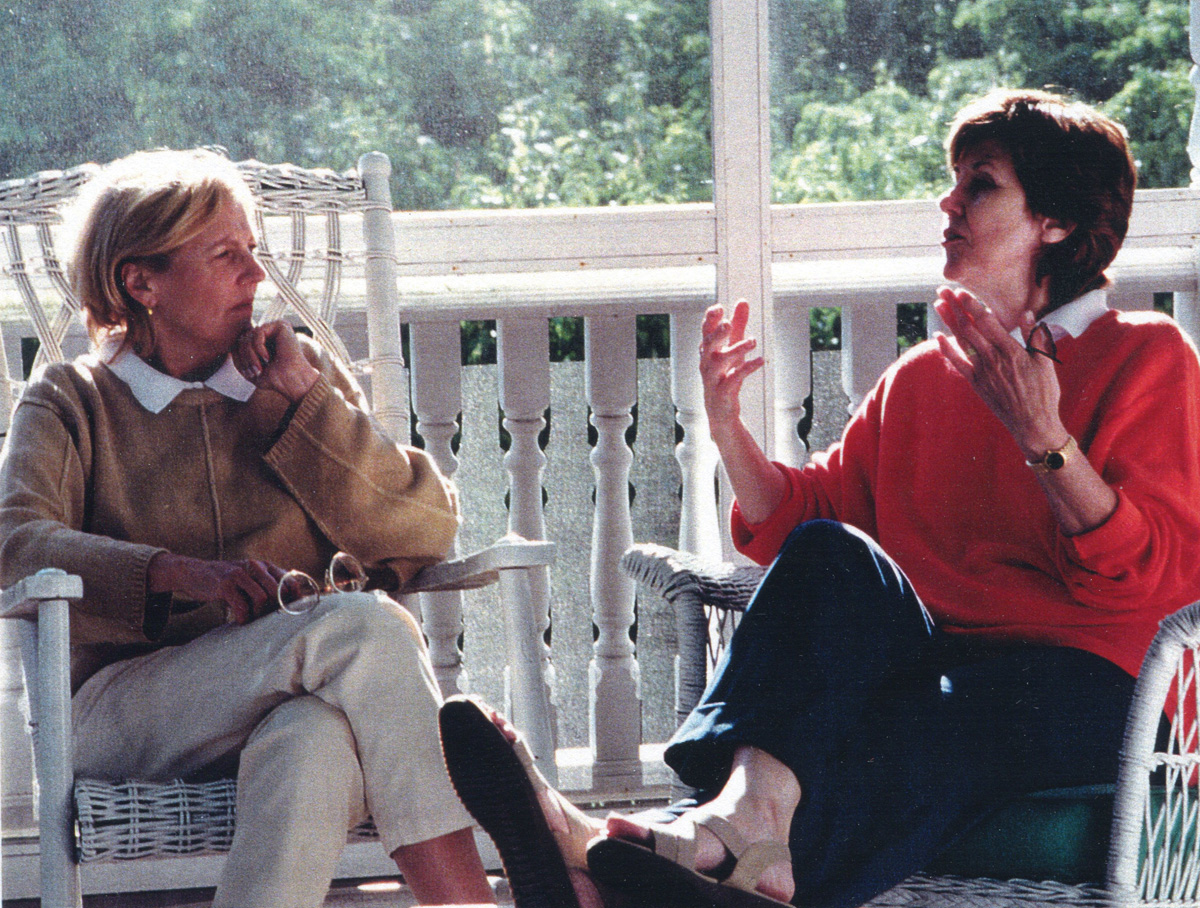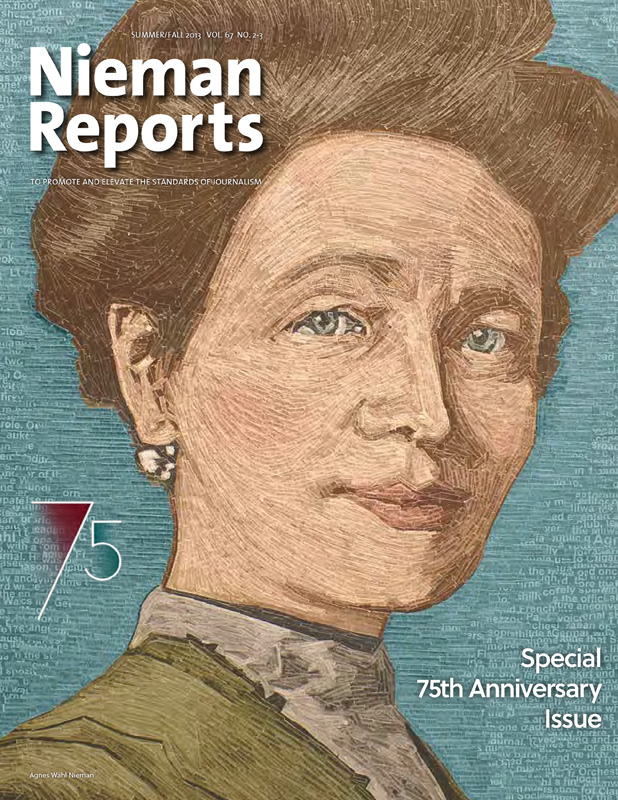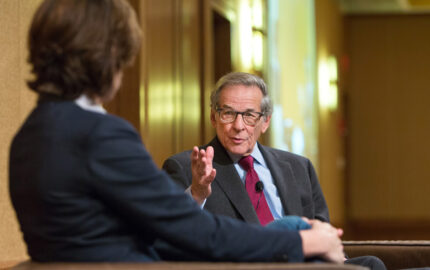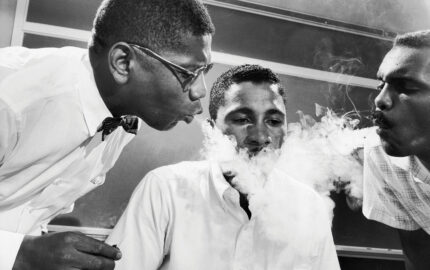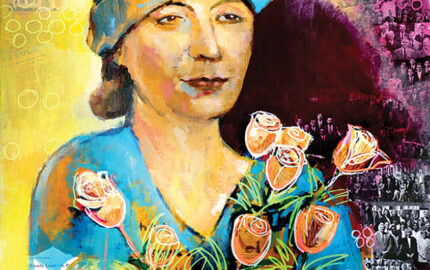Through her syndicated column, Goodman brought her feminist concerns to newspapers across the nation. O’Brien, a longtime political reporter, drew on her old beat when she started writing novels
Until 1973, it was hard for women to visualize themselves as part of the Nieman program; nearly all the Nieman Fellows were, in fact, fellows. Our class was a breakout year. We had four women, twice as many as had been accepted to any class before. What the two of us had in common was that we had been energized by the women’s movement, and we were at the same crossroads in our lives: two single mothers and newspaper reporters fueled to take a professional leap.
Our class began the personal evenings, the Soundings, when the Fellows simply talked to each other with no outside experts. But for the two of us, there was the additional moment—the importance of finding another woman exploring all the professional and personal issues raised by the women’s movement and realizing we could break rules and take risks. Pat remembers the night when she was questioning Nieman speaker Izzy Stone about his understanding of sexism. Afterward, Ellen said to Pat, “When you’re asking a tough question, you don’t have to smile.” It was a revelation. Ellen remembers opening Pat’s first book, “The Woman Alone,” and then sharing with her long talks about social change. “You need to write a book, too,” Pat said. And that encouraged Ellen to write her first book, “Turning Points.”
After our Nieman year, we went back to a world that was still chalking up “firsts” for women. Pat was the first woman assigned to the editorial page, learning that “first” can often mean “token.” When she needed a reality check, she called Ellen. Ellen went back to begin her career as a columnist. When she wanted perspective on how to tear down the boundaries between the personal and political, it was Pat she called to ask, “Think this works?” The years passed. The time came when we realized we had shared just about everything in our personal and professional lives except for one thing we did separately—writing. So, one word, one chapter, one rewrite at a time, we wrote “I Know Just What You Mean: The Power of Friendship in Women’s Lives.” And we lived to tell the tale.
